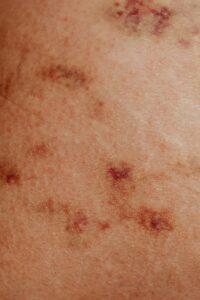What's REALLY Causing Your Psoriasis?
Introduction
Psoriasis is a complex autoimmune disease that affects millions of people worldwide. Among its various forms, Generalized Pustular Psoriasis (GPP) stands out as one of the most severe and potentially life-threatening variants. This rare skin condition requires immediate attention and comprehensive understanding from both healthcare professionals and patients.
Health awareness and patient education play crucial roles in managing skin conditions like GPP. By understanding the nature of this autoimmune disease, patients and their families can better navigate the challenges it presents and seek appropriate medical care when needed.
Autoimmune disease Health awareness Patient education Skin conditions
What is Generalized Pustular Psoriasis (GPP)?
Generalized Pustular Psoriasis (GPP) is an uncommon, potentially life-threatening inflammatory dermatosis characterized by widespread eruption of sterile pustules on erythematous skin. Unlike the more common plaque psoriasis, GPP presents with distinct characteristics that set it apart from other forms of psoriasis.
Key Characteristics of GPP:
- Widespread sterile pustules on inflamed, red skin
- Can occur with or without underlying plaque psoriasis
- Often develops abruptly with systemic symptoms
- Affects individuals of all ages, most commonly between 40-59 years
Understanding Psoriasis Symptoms and Causes
 The psoriasis symptoms in GPP are particularly severe and can include fever, malaise, and leukocytosis. Psoriasis causes are multifactorial, involving genetic mutations in genes like IL36RN, CARD14, and AP1S3, which disrupt epidermal barrier function and dysregulate innate immune signaling.
The psoriasis symptoms in GPP are particularly severe and can include fever, malaise, and leukocytosis. Psoriasis causes are multifactorial, involving genetic mutations in genes like IL36RN, CARD14, and AP1S3, which disrupt epidermal barrier function and dysregulate innate immune signaling.
Common triggers for GPP include rapid corticosteroid withdrawal, infections, medications, and physiologic stress. Understanding these psoriasis causes is essential for both prevention and management of the condition.
Generalized pustular psoriasis Psoriasis symptoms Psoriasis causes Psoriasis
The Impact of GPP
 GPP can have severe systemic manifestations that extend far beyond the skin. The condition often presents with fever, malaise, and leukocytosis, making it a medical emergency that requires immediate attention. If left untreated, GPP can lead to life-threatening complications.
GPP can have severe systemic manifestations that extend far beyond the skin. The condition often presents with fever, malaise, and leukocytosis, making it a medical emergency that requires immediate attention. If left untreated, GPP can lead to life-threatening complications.
Serious Complications Include:
Sepsis and secondary infections
Acute respiratory distress syndrome (ARDS)
Multiorgan dysfunction
Fluid and electrolyte imbalances
Is Plaque Psoriasis a Disability?
Many patients wonder, “is plaque psoriasis a disability?” While psoriasis, including GPP, can significantly impact quality of life and daily functioning, disability status depends on individual circumstances and the severity of symptoms. Patients experiencing substantial limitations in major life activities may qualify for disability benefits, emphasizing the importance of proper documentation and medical care.
The prognosis for GPP depends heavily on prompt recognition and appropriate treatment. Early intervention can prevent serious complications and improve long-term outcomes for patients.
Dr. Adam Friedman MD and His Contributions
Leading Expert in Dermatology Research
 Adam Friedman MD is Professor and Chair of Dermatology at The George Washington University School of Medicine & Health Sciences. Dr. Friedman serves as Residency Program Director, Director of Translational Research, and Director of the Supportive Oncodermatology Program.
Adam Friedman MD is Professor and Chair of Dermatology at The George Washington University School of Medicine & Health Sciences. Dr. Friedman serves as Residency Program Director, Director of Translational Research, and Director of the Supportive Oncodermatology Program.
Dr. Adam Friedman MD is currently investigating novel nanotechnologies that allow for controlled and sustained delivery of physiologically and medicinally relevant molecules. His research focuses on treating infectious diseases, accelerating wound healing, immune modulation, and correcting vascular dysfunction – all areas that contribute significantly to advancing psoriasis treatment.
Research and Clinical Contributions:
- Published over 210 papers and chapters on dermatology research
- Holds multiple patents from his investigations
- Leader in the field of medical cannabis in dermatology
- Clinical interests span medical and pediatric psoriasis
Dr. Friedman’s work in pediatric psoriasis is particularly noteworthy, as GPP can affect individuals of all ages, including children. His comprehensive approach to skin care and innovative research methodologies continue to advance our understanding of psoriasis treatment options.
Adam Friedman MD Pediatric psoriasis Psoriasis treatment Skin care
Living with GPP: Resources and Community
Living with GPP can be challenging, but patients are not alone in their journey. Various initiatives and communities provide support, education, and resources for those affected by this condition.
 GPPandMe and Community Support
GPPandMe and Community Support
The GPPandMe initiative represents a comprehensive approach to patient support and education. This program connects patients with resources, treatment information, and peer support networks that are essential for managing GPP effectively.
GPP Awareness Day
GPP Awareness Day serves as an important reminder of the need for continued education and support for those living with this rare condition. This annual observance helps raise awareness about GPP within the broader psoriasis community and among healthcare professionals.
Treatment Options and Skincare
Modern psoriasis treatment approaches for GPP typically involve systemic agents such as retinoids, cyclosporine, methotrexate, or biologics targeting the interleukin-1 or interleukin-36 pathway. Additionally, proper skincare routines and the appropriate use of psoriasis cream can help manage symptoms and improve quality of life.
The importance of comprehensive skin care cannot be overstated when managing skin conditions like GPP. Patients benefit from working closely with dermatologists to develop personalized skincare regimens that address their specific needs.
GPPandMe GPP Awareness Day Psoriasis community Psoriasis cream Skincare
Take Action for Your Health
If you or someone you know is experiencing symptoms of GPP or other forms of psoriasis, don’t wait to seek professional medical advice. Early diagnosis and treatment can make a significant difference in outcomes.
Find a Dermatologist
Conclusion
Generalized Pustular Psoriasis represents a serious form of autoimmune disease that requires immediate medical attention and ongoing management. Through increased psoriasis awareness, continued health education, and the dedicated work of researchers like Dr. Adam Friedman MD, we continue to advance our understanding and treatment of this challenging condition.
The psoriasis community, supported by initiatives like GPPandMe and GPP Awareness Day, provides invaluable resources for patients and families navigating this journey. By working together – patients, healthcare providers, researchers, and support organizations – we can improve outcomes and quality of life for those affected by GPP.
Remember that seeking professional medical advice, joining support groups, and staying informed about the latest developments in psoriasis treatment are essential steps in managing this condition effectively. The future holds promise for even better treatments and support systems for those living with GPP.
Psoriasis awareness Health education
Listen on Podcast
Did you like your experience?
Please leave us a Testimonial HERE if you have a Google account.
Your word helps get our word out to more people.
Thank you in advance!!


